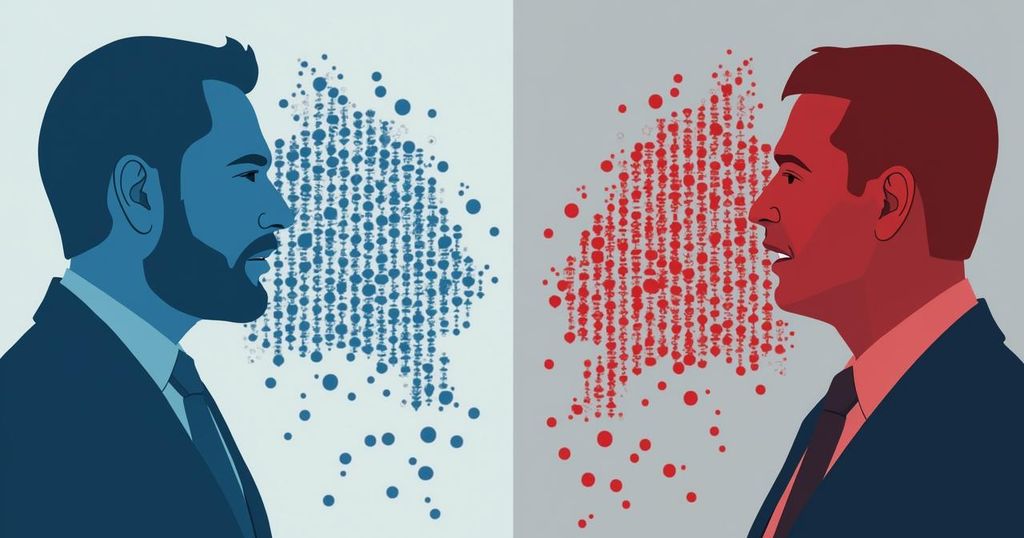Divided Perceptions: The Complex Dynamics of the Presidential Race

The presidential election reveals stark contrasts between candidates, particularly Donald Trump and Kamala Harris. Critics emphasize Trump’s polarizing impact, while supporters argue he is more competent on key issues. Concerns arise over diminishing focus on democracy as voters prioritize immediate economic and social issues. Polling suggests a competitive race while psychological factors and media biases further complicate voter perceptions.
The ongoing presidential election appears to be more contentious than expected, as expressed in varying opinions on the candidates and their positions. Critics point to former President Donald Trump as a polarizing figure whose controversial behavior and rhetoric alienate key voter demographics, particularly college-educated individuals and women. It is suggested that a more moderate Republican candidate could have led to a more favorable position for the party. In contrast, supporters of Trump highlight that he and the Republican Party are perceived as more capable of addressing essential issues such as the economy, inflation, crime, and immigration. Many believe Trump’s leadership could have prevented crises seen today, raising questions about why polling indicates a competitive race despite these perceived advantages. This sentiment resonates with critiques of mainstream media bias toward Vice President Kamala Harris, arguing that her support largely stems from anti-Trump sentiment rather than an endorsement of her policies. Furthermore, there is growing concern that although preserving democracy was a priority in past elections, it has diminished in current voter considerations amid pressing issues like economic stability and reproductive rights. Critics urge voters to consider the implications of their choices on democratic values, particularly regarding Trump’s actions that challenge the electoral process and the integrity of democracy. Psychological perspectives also illuminate the political divide, suggesting inherent neurological differences between conservatives and liberals that shape their views and reactions to political issues. Meanwhile, polling data, although sometimes seen as inconclusive, maintains a consistent narrative in critical battleground states, highlighting the precarious nature of the electoral race and its implications for both candidates.
The discourse surrounding the current presidential race has been significantly influenced by the public’s perception of Donald Trump and Vice President Kamala Harris. With Trump dominating political narratives due to his controversial statements and actions, he continues to galvanize his base while polarizing broader voter demographics. On the other hand, Harris’s candidacy relies on a mix of public sentiment both for and against Trump, raising questions about her support base’s motivations. Amid significant issues like economic stability and social rights, the electoral focus appears to be shifting away from the fundamental principles of democracy, prompting calls for a renewed emphasis on democratic values as elections approach. The variance in political psychology and polling data offers further insights into the complexities underlying voter behavior and electoral outcomes.
The current presidential election is characterized by a clash of opinions regarding the viability and qualities of the candidates, particularly in relation to Trump’s potential for inciting emotions of fear and loyalty among voters. Many argue that the election should be framed not just in terms of policy but also in the fundamental principles of democracy. As polling indicates a competitive race, marked by public concerns over essential issues, a deeper examination of voter motivations, psychological factors, and media influences could illuminate the underlying dynamics shaping electoral outcomes. Ultimately, the choice voters make will resonate far beyond immediate political implications, impacting the trajectory of democratic governance.
Original Source: www.washingtonpost.com







